American semiconductor giant Qualcomm launched its flagship 5G processor, Snapdragon 865, along with two 5G premium mid-range processors, 765 and 765G, in December 2019. In October 2019, Samsung also unveiled its next-generation flagship processor, Exynos 990. Both processors will power 2020’s flagship 5G phones. However, on the upcoming Galaxy S20 lineup, we will see two different versions depending upon the country/ region, one with Snapdragon 865 SoC and another with Exynos 990 SoC. Now, questions are arising as to how the top-tier flagship chipsets fare against each other. So, let’s take a look at an in-depth comparison of both these flagship processors based on their specifications and benchmark scores.
Snapdragon 865 vs Exynos 990 Comparison
Central Processing Unit (CPU)
First of all, we can’t compare the Snapdragon 865 to the Exynos 990 due to Samsung’s approach to making their new custom CPU design. Also, Samsung hasn’t disclosed about the frequencies of their flagship processor.
Snapdragon took a clear-cut approach and showed every detail regarding their new flagship processor, 865. So, if we look at the Snapdragon 865, it’s an octa-core CPU. Between those eight cores, One core is dedicated towards high-performance tasks with ARM Cortex A77 core based on Kryo 585 Microarchitecture, which runs at 2.84GHz, Three other cores run on the same architecture with 2.42GHz speed for somewhat power-efficient tasks, and last four core are made taking power efficient in mind, these cores are made using ARM Cortex A55 core based on Kryo 385 Microarchitecture which runs at 1.8GHz speed.
Now, coming to Samsung’s Exynos 990, it is also an octa-core CPU. But they haven’t shared the clock speed of those eight cores. Of those eight cores, two cores run on Samsung’s own 5th gen Mongoose architecture, which is called Exynos M5 cores, and Samsung says those two cores are 20% faster compared to their 4th gen Mongoose cores; the next two cores are upgraded from Cortex A75 to Cortex A76 this time and the rest four cores Cortex A55 cores.
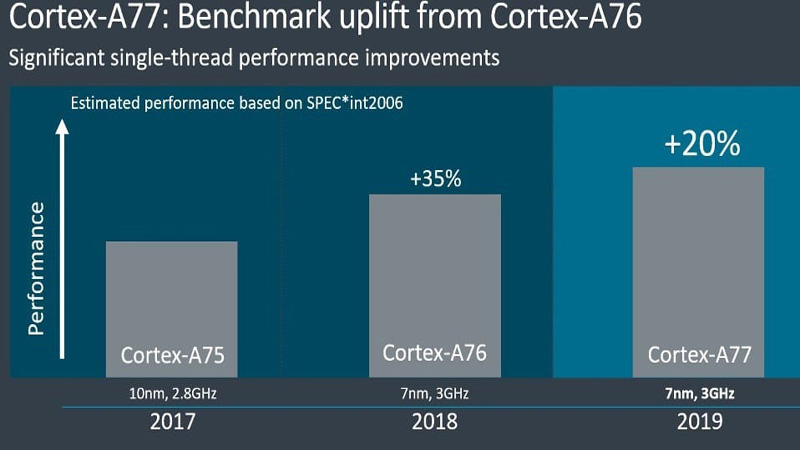
Graphics Processing Unit (GPU)
If we are to believe the claim of Qualcomm and Samsung this year, both the GPUs of Snapdragon 865 and Exynos 990 are 20% faster compared to their last-gen GPUs. But in terms of power efficiency, Snapdragon 865 is likely to gain the upper hand in this field. In the Snapdragon 865, we see Adreno 650 GPU at 587 MHz, and in the Exynos 990, we see ARM Mali-G77 GPU in MP11 configuration.
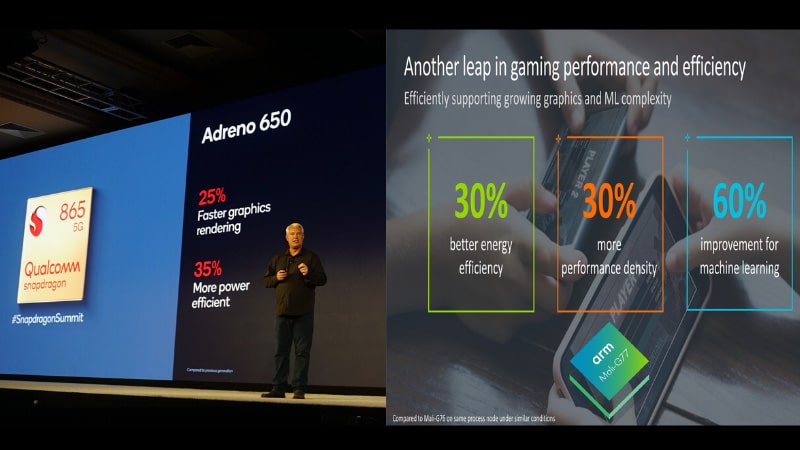
Manufacturing Process
Both chipsets are built using 7nm lithography, but they somewhat differ in their manufacturing process. Qualcomm is making Snapdragon 865 using TSMC’s 7nm N7P node, whereas Samsung manufactures Exynos 990 using their own 7nm EUV(Extreme Ultraviolet) node.
Memory
In terms of memory, both SoCs got upgraded from their previous flagship counterpart. The Snapdragon 865 memory type is upgraded to LPDDR5 from LPDDR4, and it supports speeds up to 2750MHz. Also, the Exynos 990 memory type is upgraded to LPDDR5 from LPDDR4X, and the speed is the same as the Snapdragon 865 SoC. So, the users will gain speed improvement as well as better power efficiency from this change. So, in terms of memory, it’s a tie between these two flagship SOCs.
AI Performance
In AI performance, we can see a clear winner here with its raw performance. With Hexagon 698 DSP, Hexagon Vector eXtensions, and the new Hexagon Tensor Accelerator, the 5th generation AI Engine of Snapdragon 865 can perform over 15 trillion operations per second (TOPS). Compared to the Snapdragon 865, the Exynos 990, with its dual-core NPU and improved DSP, can perform over 10 trillion operations per second. So, we can clearly see that the Snapdragon 865 is 50% faster in AI performance.
Display
With the launch of the Snapdragon 865, we have entered a new height of high refresh rate mobile displays. We have seen many smartphones this year with 90Hz or 120Hz displays, but the year 2020 will be different, as we will see 144Hz smartphone displays. Qualcomm said the Snapdragon 865 is capable of pushing QHD+ resolution to 144Hz. But Samsung’s flagship SoC is still stuck at a 120Hz refresh rate. Exynos 990 can support resolution up to WQUXGA (3840×2400). So, in this field, Qualcomm’s flagship SoC is the winner because of the addition of 144 Hz refresh rate support.
Camera
Snapdragon 865, with its new ISP Spectra 480, made few improvements compared to the last-gen flagship 855. The new ISP can process images up to 200MP in size and also 64MP images with zero shutter lag. It can shoot 4K HDR video and 64MP burst images simultaneously and for slow-mo video lovers good news now you will be able to record 960fps slow-mo video at 720p resolution without any time limit. If we talk about the resolution field of the camera, the Exynos 990 is far behind the Snapdragon 865. Exynos 990’s ISP can support images up to 108MP in size (from a single sensor) and 24.8MP+24.8MP in size (from dual sensors).
Connectivity
For connectivity, both Snapdragon 865 and Exynos 990 use external modems dubbed as X55 5G modem-RF system and 5G Exynos Modem 5123, respectively. For LTE, Exynos 990 claims 3Gbps DL (download link) speed and 0.422Gbps UL speed, whereas for 5G, it promises 5.1Gbps DL for Sub-6 5G NR and 7.35Gbps DL for mmWave 5G NR speeds. But for 5G networks, Samsung doesn’t share their UL (Upload link). Whereas Snapdragon 865 claims 7.5Gbps DL and 3Gbps UL, which is slightly better compared to Exynos 990. But these are theoretical numbers; real-world performance will vary depending upon various factors for connectivity.
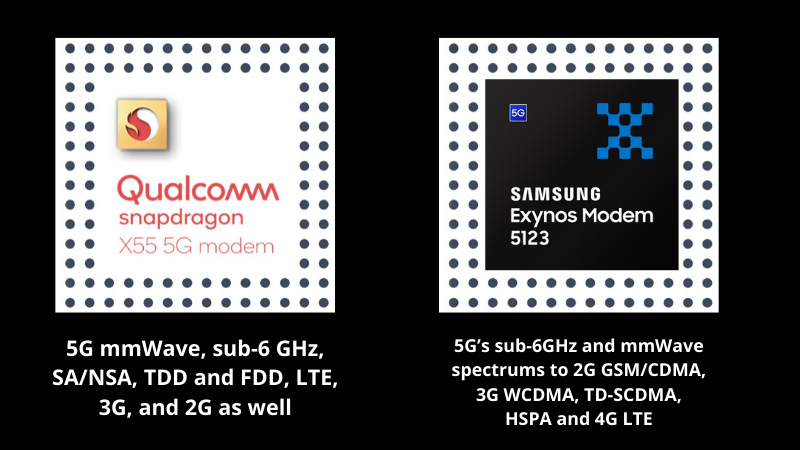
Specifications That Matter
Here’s the specifications comparison table to find out the differences and similarities.
| SoC | Snapdragon 865 | Exynos 990 |
| Model | SDM865, SM8250 | S5E9830 |
| CPU | 1x Kryo 585 (Cortex A77) @ 2.84GHz 3x Kryo 585 (Cortex A77) @ 2.4GHz 4x Kryo 385 (Cortex A55) @ 1.8GHz | 2x Exynos M5 2x Cortex A76 4x Cortex A55 |
| GPU | Adreno 650 | Mali-G77 MP11 |
| Process | TSMC's 7nm N7P | Samsung's 7nm EUV |
| AI | Dual NPU, DSP >10 TOPs | 5th generation AI Engine Hexagon 698 15 TOPs |
| RAM | LPDDR5 @ 2750MHz | LPDDR5 @ 2750MHz |
| Storage | UFS 3.0, UFS 2.1 | UFS 3.0, UFS 2.1 |
| Display | 4K UHD @ 60Hz, QHD+ @ 144Hz | WQUXGA (3840x2400) 4K UHD (4096x2160) 120Hz |
| Camera | Single: 200MP Dual: Up to 25MP; ZSL | Single: 108MP Dual: 24.8MP+24.8MP |
| Modem | 2nd Gen Snapdragon X55 Modem(External) Downlink: 7.5Gbps (5G), 2.5Gbps (4G LTE) Uplink: 3Gbps (5G), 316Mbps (4G LTE) | Exynos Modem 5123(External) DownLink = 3000 Mbps (LTE Category 24/22) Uplink = 422 Mbps (LTE Category 24/22) DownLink = 5100 Mbps (5G NR Sub-6) DownLink = 7350 Mbps (5G NR mmWave) |
Which one is better, Snapdragon 865 and Exynos 990?
Above, we discussed all the key points related to both processors, but we can’t clearly predict a winner without seeing the real-world performance of these two processors because specs are just numbers and how device manufacturers use those numbers to their advantage to make an outstanding device that a whole new story. Also, we can’t expect all these specs in future smartphones; for example, the Snapdragon 855 was able to process 192MP size images, but we never saw any smartphone with a 192MP camera in 2019.
If we see the benchmarking score of both processors, we don’t see much difference. If we look at single-core results, Exynos 990 is slightly ahead of Snapdragon 865, whereas in multi-core score, Qualcomm’s 865 outranks Samsung’s 990 by a far higher margin.
In Geekbench 5.1, the Snapdragon 865-powered Galaxy S20 scored 923 in single-core and 3267 in the multi-core test, respectively, whereas the Exynos 990-powered Galaxy S20 scored 938 in single-core and 2726 in the multi-core test, respectively.
So, by looking at the benchmarking scores, we can say overall that Snapdragon 865 is a better SoC compared to Exynos 990.
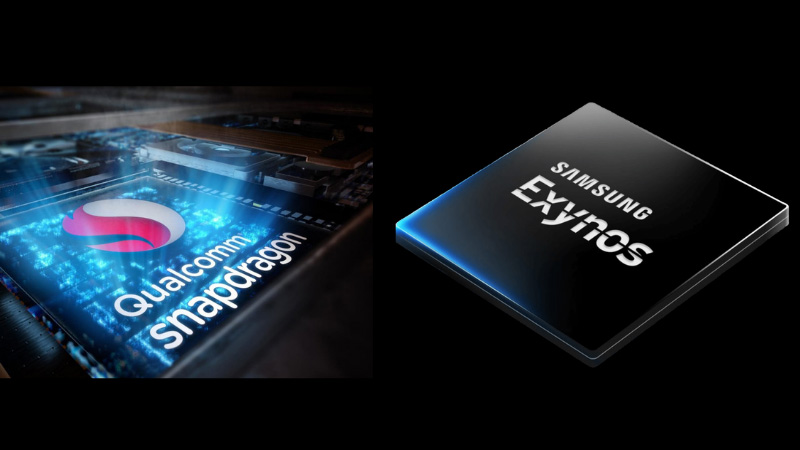
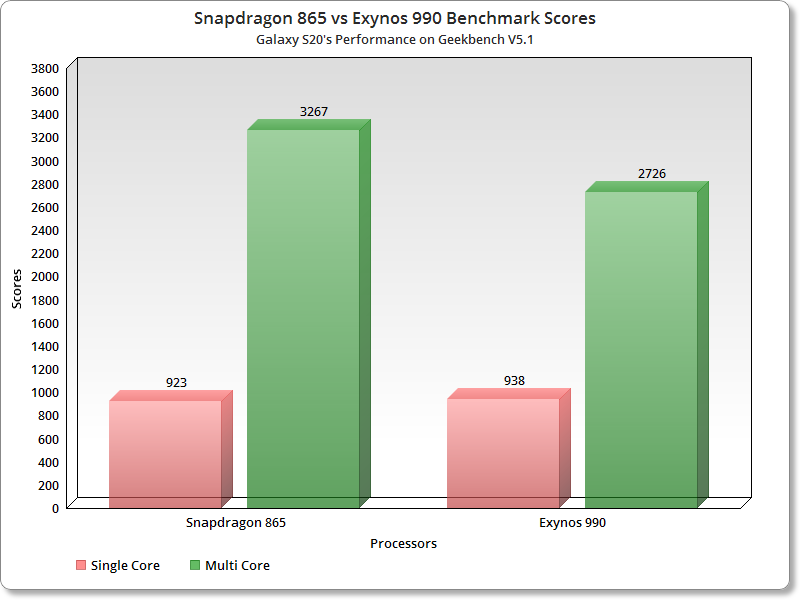



Stranger
Correct your paragraph about AI. Exynos should be the winner there according to numbers. One expects a certain level of proof-reading while posting articles on the Internet.
Bhabesh Talukdar
Please re-check the numbers, Snapdragon 865 is very much ahead of Exynos 990 in terms of AI performance.
Andy
This really sucks, and I’m going to avoid buying Samsung because of this. They charge the same price for the S20 models, but one has inferior performance. This is a discriminatory business practice that should be litigated against. It’s plain wrong. The S20 handsets with the Exynos CPUs should be much cheaper than their SnapDragon counterparts. They’re not the same product, and shouldn’t be treated as such.
To hell with Samsung.
Rex
Infact the Indian LTE variant is cheaper compared to SD 5G variants of S20 series.
The base price of SD 5G S20 is 999USD. Applying just the currency conversion without taxes leaves you with 72000.. the S20+ that I have booked comes at that price here..in USD + tax it should have been atleast 93K. So it is cheaper.
Don’t think these numbers matter too much. If someone is taking 190 mp pictures using a camera then there is something seriously wrong with him..
Exynos is a decent chipset to run a flagship device.
Tom
In my opinion there enough computing power in both SoCs. The bigger question is the power consumption. Are they on par or is one more energy efficient than the other?
Mick
Last year’s versions told the same story. Worse performance and worse battery life buy like 15% I think. I will never buy a Samsung in my country while other parts of the world get the better version for the same if not cheaper price.
They even fired all the chip makers last year